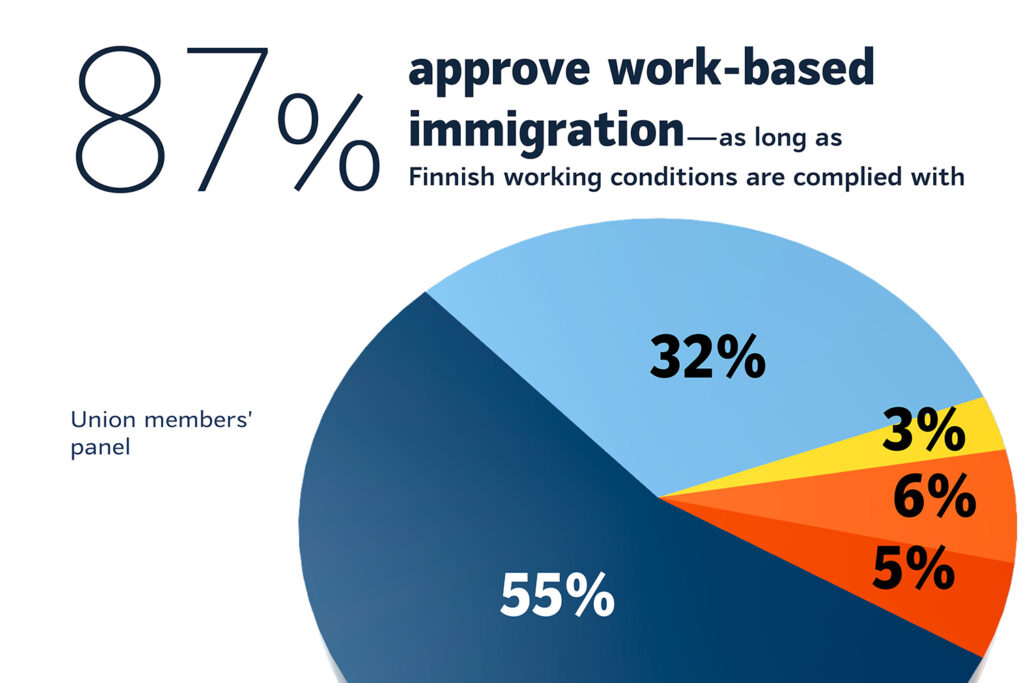Cherry-picking labour laws
The new Finnish right-wing Government plans radical changes to labour legislation. Their grand plan is clearly designed to tip the balance of power in workplaces to unilaterally favour employers.
Arto Satonen, Minister of Employment, claims the new unjust laws are just minor changes in step with other Nordic countries. To put it mildly, this is simply not true. On the contrary.
The Orpo-Purra Government is simply cherry-picking labour laws from other countries. They only selected a handful of such changes that clearly benefit employers and company owners. In many cases, they modified these changes to be even more disadvantageous to employees.
The Swedish labour market model is based on balanced rights, a culture of negotiation and the right of the employee to be heard. All this creates mutual trust which is extremely important when it comes to reaching common goals.
The Orpo-Purra Government is now taking Finland in precisely the opposite direction. In Sweden, the law stipulates that in companies with more than 25 employees, there must be at least two employees’ representatives on the company board.
Labour law is a whole. Its component parts should be balanced. The law should protect the weaker part.
This is to give employees better access to information and the possibility to be heard, something our Government is unwilling to support. In Finland, in companies with at least 150 employees, an employees’ representative can participate the company administrative body meeting in discussions concerning company finances and the status of employees. This is enough, the Government thinks.
Another important issue is the interpretation privilege. This means whoever has the right to interpret rules and agreements in cases of dispute. In Finland, it is the employer. In Sweden, usually the employees and the local trade union branch have it.
Labour law is a whole. Its component parts should be balanced. The law should protect the weaker part. Now, the Orpo-Purra Government is trying to break these golden rules. Their policy will move us even further from our Nordic neighbours and closer to our eastern neighbour.
Which side are you on?
One of the most draconian changes the Finnish right-wing Government is planning is to make dismissals easier for the employer.
At present, our law requires “relevant and serious grounds” for a dismissal. The Orpo-Purra Government will drop the serious grounds and allow relevant grounds as sufficient reason for dismissal.
This is clearly designed to make dismissal easier. In law, even a simple word can make a difference and is not dropped without serious grounds.
The German economy has been doing well for decades. Yet, dismissal is much more difficult there than here, and no Government has attempted to challenge that.
The Orpo-Purra Government will drop the serious grounds and allow relevant grounds as sufficient reason for dismissal.
Giving long terms of notice is the norm and depends on the length of your employment. Firing someone needs reasons defined in the law.
In Germany, in every company with more than five employees they can form a works council. The council has a lot to say in the company.
In case of dismissal, the works council must be heard. It will find out whether the dismissal is legal. If it disagrees, the dismissal is not valid and the employer can take the case to the labour court.
The radical dismissal policy of the Orpo-Purra Government is not based on bolstering the economy, but on ideology. The Government has chosen its side. Which side are you on?




